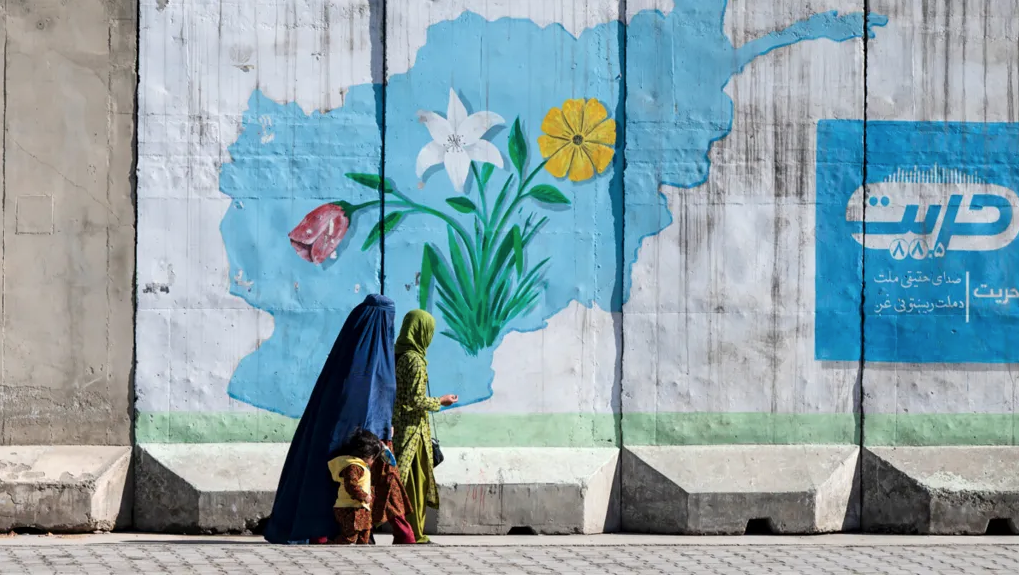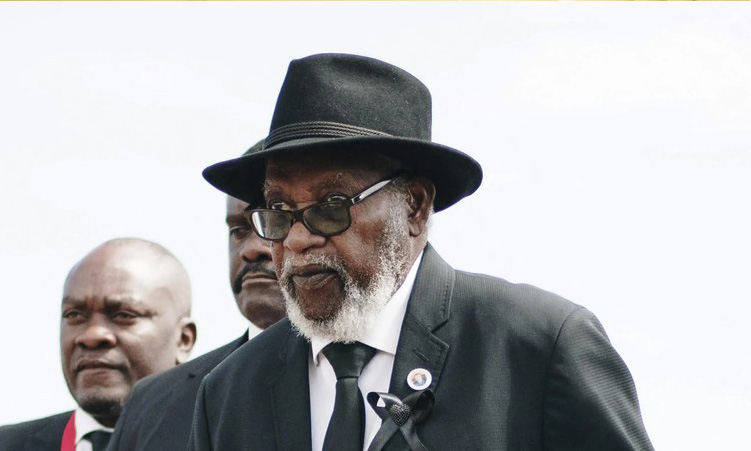The daily English lessons that Shabana attends are the highlight of her day. Taking the bus in Kabul to the private course with her friends, chatting and laughing with them, learning something new for one hour each day – it’s a brief respite from the emptiness that has engulfed her life since the Taliban took over Afghanistan.
In another country, Shabana* would have been graduating from high school next year, pursuing her dream to get a business degree. In Afghanistan, she and all teenage girls have been barred from formal education for three years.
Now even the small joys that were making life bearable are fraught with fear after a new law was announced saying if a woman is outside her home, even her voice must not be heard.
“When we got out, we’re scared. When we’re on the bus, we’re scared. We don’t dare to take down our masks. We even avoid speaking among ourselves, thinking that if someone from the Taliban hears us they could stop and question us,” she says.
The BBC has been in Afghanistan, allowing rare access to the country’s women and girls – as well as Taliban spokespeople – reacting to the new law, which was imposed by the Taliban’s supreme leader Haibatullah Akhundzada.
The law gives the Propagation of Virtue and Prevention of Vice Ministry – the Taliban’s morality police – sweeping powers to enforce a stringent code of conduct for Afghan citizens.
For women who have already had their freedoms crushed bit by bit by a relentless series of decrees, it delivers another blow.
“If we can’t speak, why even live? We’re like dead bodies moving around,” Shabana says.
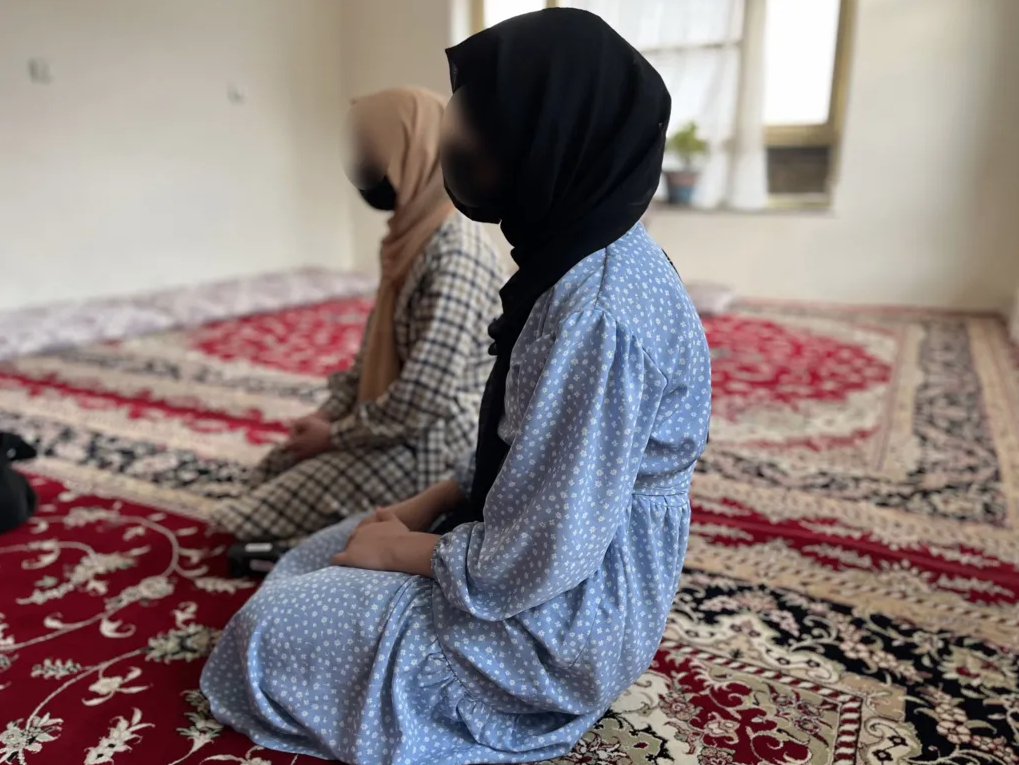
“When I learnt about the new law, I decided not to attend the course any more. Because if I go out, I’ll end up speaking and then something bad might happen. Maybe I won’t return home safely. But then my mother encouraged me to continue.”
In the three years since the Taliban takeover, it’s become clear that even if edicts aren’t strictly imposed, people start self-regulating out of fear. Women continue to be visible in small numbers on the streets of cities like Kabul, but nearly all of them now are covered from head to toe in loose black clothes or dark blue burqas, and most of them cover their faces with only their eyes visible, the impact of a decree announced last year.
“Every moment you feel like you’re in a prison. Even breathing has become difficult here,” said Nausheen, an activist.
Until last year, whenever new restrictions were announced, she was among small groups of women who marched on the streets of Kabul and other cities, demanding their rights.
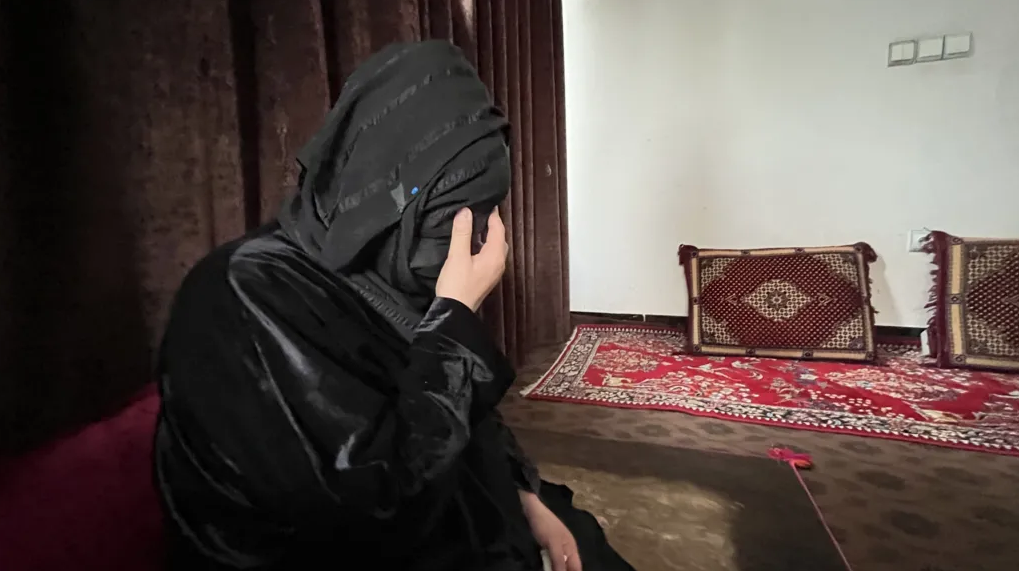
The protests were violently cracked down on by the Taliban’s forces on multiple occasions, until they stopped altogether.
Nausheen was detained last year. “The Taliban dragged me into a vehicle saying ‘Why are you acting against us? This is an Islamic system.’ They took me to a dark, frightening place and held me there, using terrible language against me. They also beat me,” she says, breaking down into tears.
“When we were released from detention we were not the same people as before and that’s why we stopped protesting,” she adds. “I don’t want to be humiliated any more because I’m a woman. It is better to die than to live like this.”
Now Afghan women are showing their dissent by posting videos of themselves online, their faces covered, singing songs about freedom. “Let’s become one voice, let’s walk together holding hands and become free of this cruelty” are the lines of one such song.
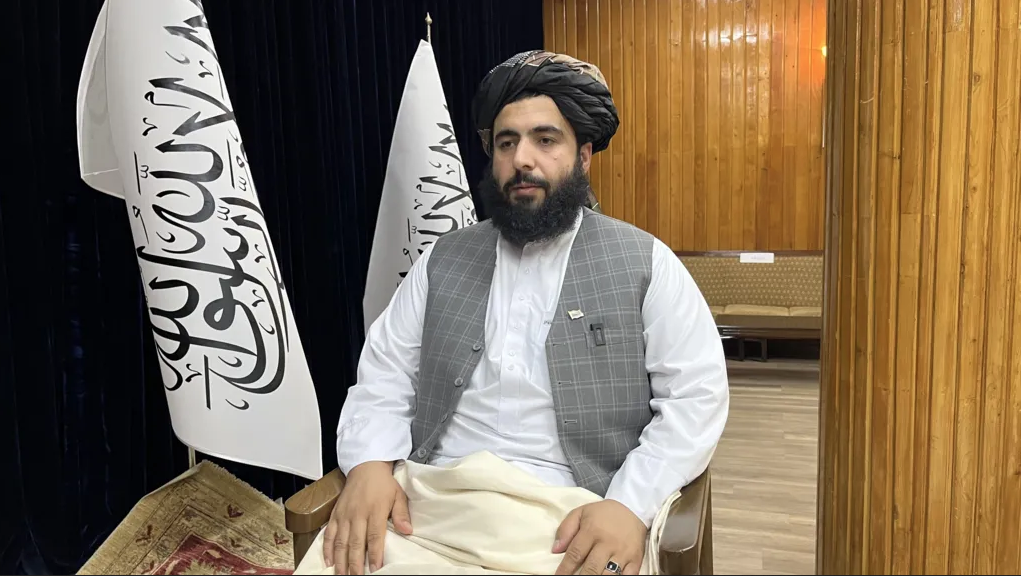
Taliban government deputy spokesman Hamdullah Fitrat, who didn’t want to be pictured with a woman or sit directly opposite me, justified the new edict, which came accompanied with copious footnotes – references to religious texts.
“The law approved by the supreme leader is in accordance with Islamic Sharia law. Any religious scholar can check its references,” he says.
Shireen, a teacher, does not agree.
“This is their own interpretation of Sharia. Islam has given the right to both men and women to choose if they want to study and progress.
“If they say that women’s voices should not be heard, let’s go back to history. There are so many women in Islamic history who have spoken out.”
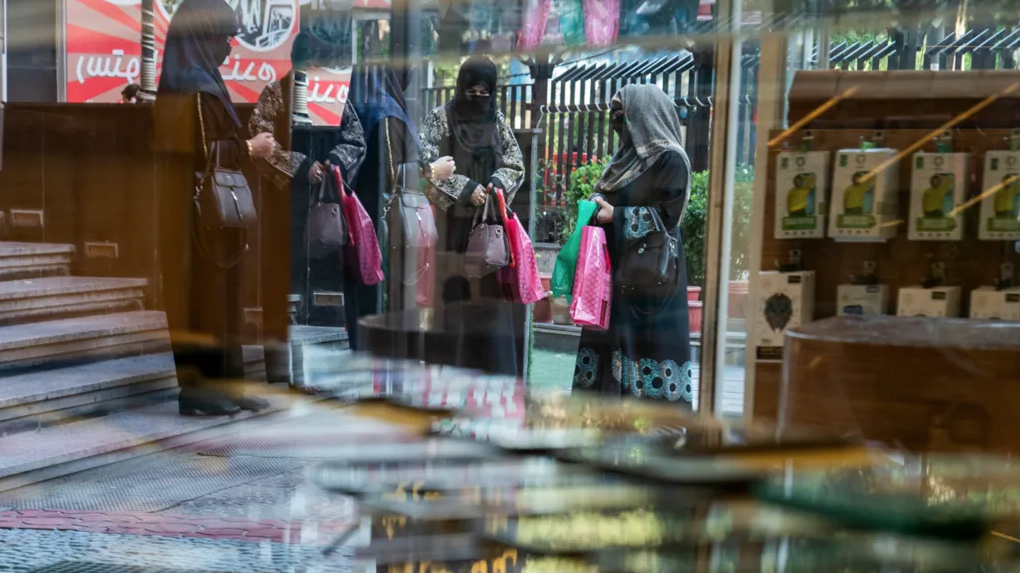
Shireen is part of a network of Afghan women running secret schools quietly rebelling against the restrictions. Already operating under a great deal of risk, often having to move the location of the school for safety, the new law has compounded her fears.
The danger of discovery is so great, she cannot speak to us at home, instead choosing a discreet location.
“Every morning I wake up asking God to make the day pass safely. When the new law came, I explained all its rules to my students and told them things would be more difficult. But I am so tired of all this, sometimes I just want to scream,” she says. “They don’t see women as human beings, just as tools whose only place is inside the home.”
Karina, a psychologist who consults with a network of secret schools, has previously told us that Afghan women are suffering from a ‘pandemic of suicidal thoughts’ because of the restrictions against them.
After the new law was announced she says she had a surge in calls asking for help. “A friend of mine messaged me to say this was her last message. She was thinking of ending her life. They feel all hope is gone and there is no point in continuing living,” she said. “And it’s becoming more and more difficult to counsel them.”
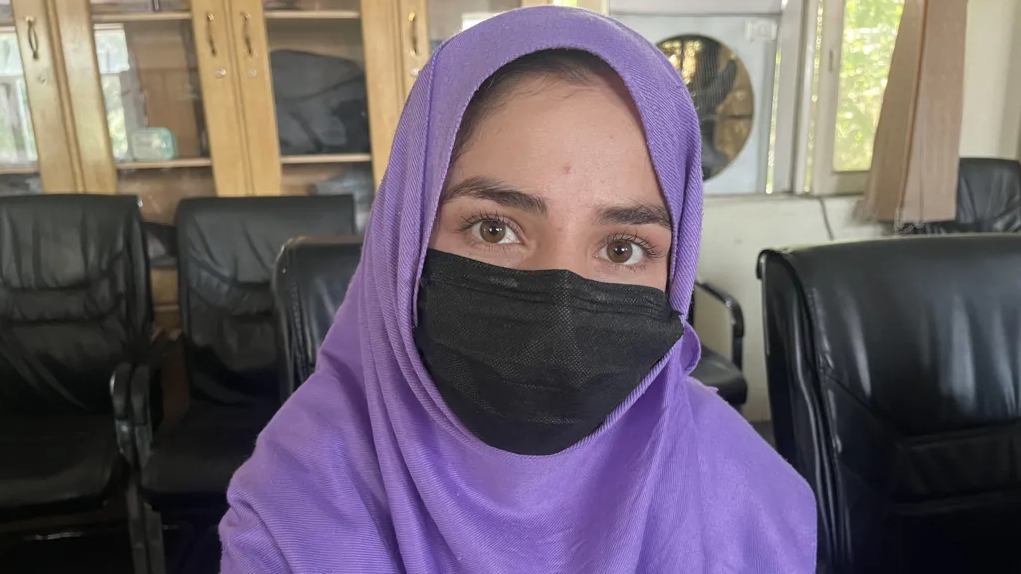
I asked Hamdullah Fitrat about the Taliban government’s responsibility towards women and girls in their country who are being driven into depression and suicidal thoughts because they’re banned from education.
“Our sisters’ education is an important issue. We’re trying to resolve this issue which is the demand of a lot of our sisters,” the spokesman said.
But three years on, do they really expect people to believe them?
“We are awaiting a decision from our leadership. When it is made, we will all be told about it,” he replied.
From earlier meetings with Taliban officials, it has been evident for a while that there are divisions within the Taliban government on the issue of women’s education, with some wanting it to be restarted. But the Kandahar-based leadership has remained intransigent, and there has been no public breaking of ranks with the supreme leader’s diktats.
We have seen some evidence of the difference in views. Not far from Kabul, we were unexpectedly given access to a midwife training course regularly run by the Taliban’s public health ministry. It was under way when we visited, and because ours was a last-minute visit, we know it was not put on for us to see.
More than a dozen women in their 20s were attending the course being conducted by a senior female doctor. The course is a mix of theory and practical sessions.
The students couldn’t speak freely but many said they were happy to be able to do this work.
“My family feels so proud of me. I have left my children at home to come here, but they know I’m serving the country. This works gives me so much positive energy,” said Safia.
Many acknowledged their privilege, and some expressed fear about whether even this might be stopped eventually. The Taliban’s health ministry didn’t answer questions about how they would find students to do this course in the future, if girls were not receiving formal education after grade six.
Public health, security, arts and craft are among a handful of sectors where women have been able to continue working in parts of the country. But it isn’t a formal decree that gives them permission. It’s happening through a quiet understanding between ground-level Taliban officials, NGOs and other stakeholders involved.
The new law leaves even this informal system vulnerable to the scrutiny of the Taliban’s morality police.
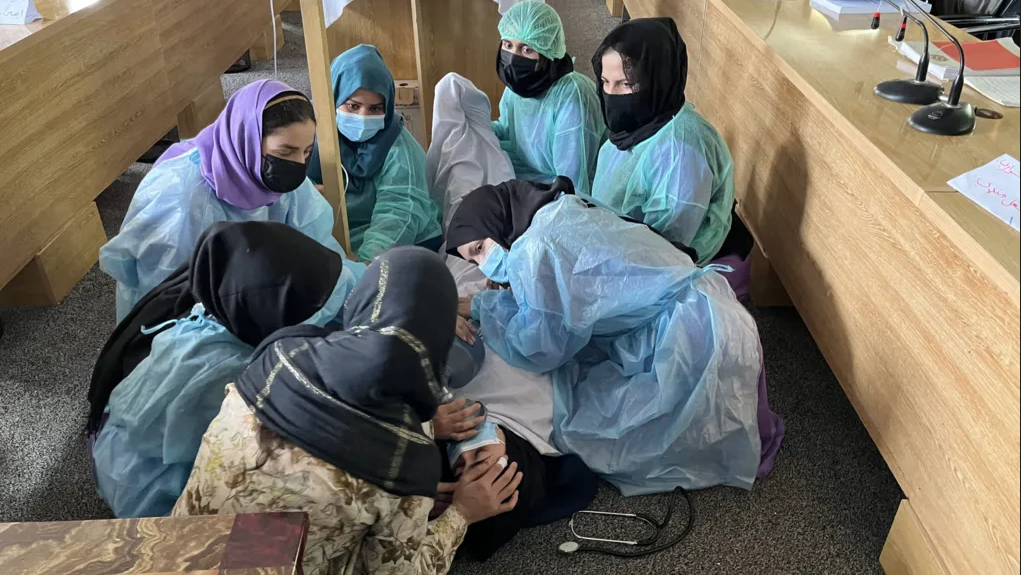
Sources in humanitarian agencies have told us they are grappling to understand how the law should be interpreted but they believe it will make operations more difficult.
The law was announced less than two months after the Taliban attended UN-led talks on engagement with Afghanistan for the first time – a meeting that Afghan civil society representatives and women’s rights activists had been kept out of, at the insistence of the Taliban.
It’s led many in the international community to question whether it was worth accepting the Taliban’s conditions for a meeting, and what the future of engagement with them might look like.
Reacting to the new law, the EU put out a sharply worded statement describing the restrictions as ‘systematic and systemic abuses… which may amount to gender persecution which is a crime against humanity’. It also said the decree creates ‘another self-imposed obstacle to normalised relations and recognition by the international community’.
“The values laid out in the law are accepted in Afghan society. There are no problems. We want the international community, especially the UN and others to respect Islamic laws, traditions and the values of Muslim societies,” Taliban deputy spokesman Hamdullah Fitrat said.
Less than two weeks ago the Taliban’s Vice and Virtue Ministry said it would no longer co-operate with the UN mission in Afghanistan because of its criticism of the law.
It’s evidence that relations which seemed to be progressing just two months ago, appear to have now hit a significant roadblock.
“I believe that when it comes to aid, the world should continue helping Afghanistan. But when it comes to talking to the Taliban, there should be a rule that in each discussion women must be present. And if that can’t happen, they [the international community] should stop talking to them,” psychologist Karina said.
“The world must care about what’s happening with Afghan women, because if it doesn’t this mentality could easily spread to them, to their homes.”
* The names of all women interviewed for this piece were changed for their safety
Additional reporting by Imogen Anderson and Sanjay Ganguly
Stay informed with The Namibian – your source for credible journalism. Get in-depth reporting and opinions for
only N$85 a month. Invest in journalism, invest in democracy –
Subscribe Now!




